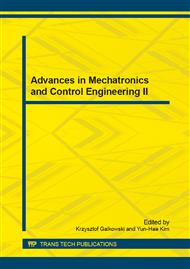p.1567
p.1572
p.1581
p.1588
p.1593
p.1597
p.1603
p.1609
p.1613
An Algorithm of LDA Topic Reduction Based on Rough Set
Abstract:
The topic model LDA can uncover latent topics in text mining, through the probability distribution of words in the text to get the distribution of topics. This approach ignores the correlation between the topics, so in some actual domain it is not enough to reflect the real situations of the topics. We can divide the topics into two classes: key topics and unimportant topics. The key topics can reflect the word attributes well, and other topics can be look as subordinate. Considering the relations of the topics, a topic reduction algorithm is proposed to retain the key topics and delete the redundant topics based on rough set. Because the LDA topics exists uncertainty distribution and rough set can deal with uncertain data well, so the algorithm based on rough set can improve the accuracy of topics analysis.
Info:
Periodical:
Pages:
1593-1596
Citation:
Online since:
October 2013
Authors:
Price:
Сopyright:
© 2013 Trans Tech Publications Ltd. All Rights Reserved
Share:
Citation:


